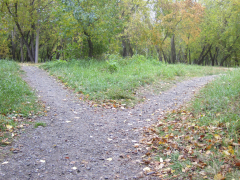All of us face life's most difficult decisions with the best information we have available at the time. Yet greater awareness is urgently needed of how fossil-fuel-invested choices at the end of life result in significant, often unrecognized damage. Can the death of a master composter help us connect the dots?
Earth Island Journal, 2/19/19
Both composting and natural burial hinge on acceptance that the organic remains of the living are neither trash nor personal commodities. They belong, and should be brought back, to the earth.
 These connections were intensified for me last April with the self-immolation of master composter David Buckel in my local community of Brooklyn, NY. A pioneering civil rights attorney who had exchanged legal briefs for buckets and shovels, Buckel was passionate about involving as many people as possible in community composting powered entirely by renewable energy sources. “My early death by fossil fuel reflects what we are doing to ourselves,” he declared in his final message before setting himself on fire.
These connections were intensified for me last April with the self-immolation of master composter David Buckel in my local community of Brooklyn, NY. A pioneering civil rights attorney who had exchanged legal briefs for buckets and shovels, Buckel was passionate about involving as many people as possible in community composting powered entirely by renewable energy sources. “My early death by fossil fuel reflects what we are doing to ourselves,” he declared in his final message before setting himself on fire.
It has never been easy to accept our own bodies as compostable material. Perhaps David Buckel's legacy can help us affirm life by redirecting our end-of-life conversations toward a natural, fossil-fuel-divested return to the earth. LEARN MORE
 WAYS OF PEACE Community Resources promotes justice and kindness across lines of diversity and throughout the life cycle. We foster the dialogue among generations that is essential for learning the lessons of history.
WAYS OF PEACE Community Resources promotes justice and kindness across lines of diversity and throughout the life cycle. We foster the dialogue among generations that is essential for learning the lessons of history.



